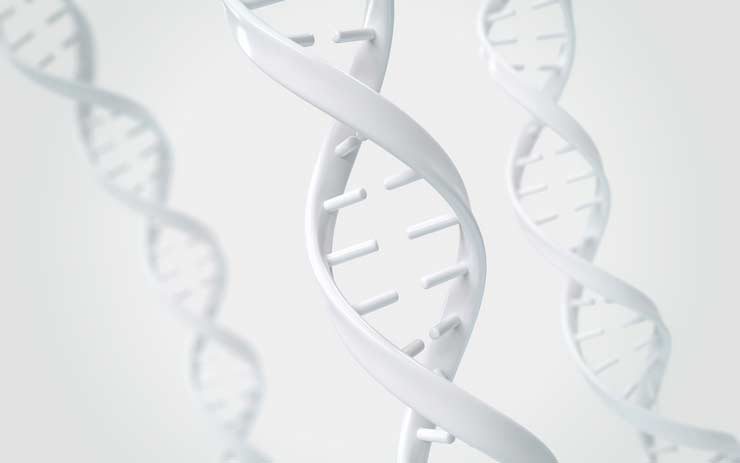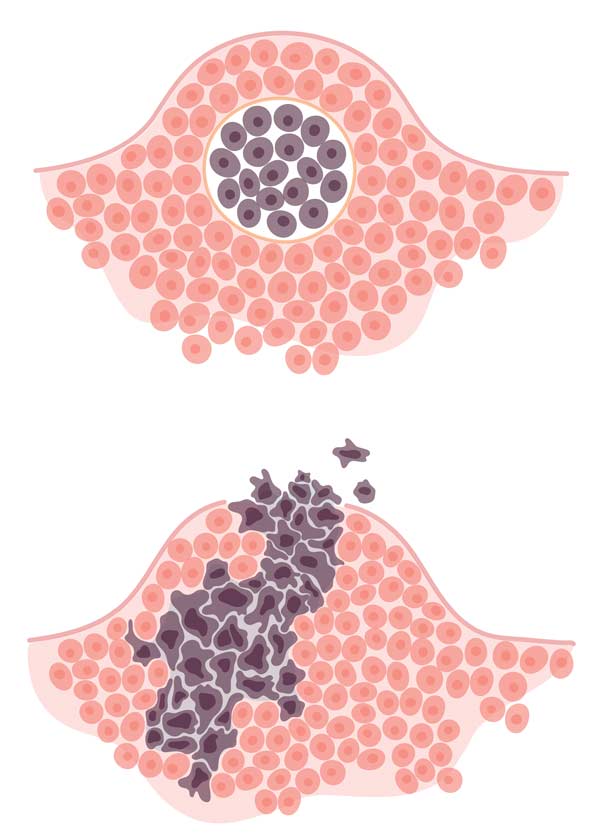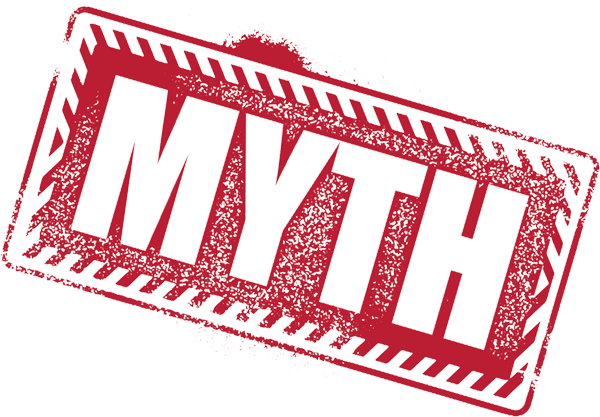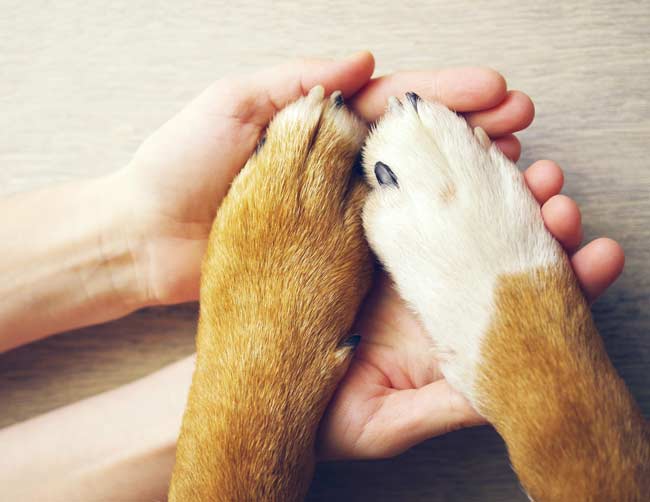Feeding dogs with cancer
January 27, 2023 | By David Jackson, AllAboutDogFood.co.uk

Your dog has cancer.
The four words every dog owner dreads but more and more are having to hear.
In fact 1 in 4 of our furry friends will be diagnosed with cancer of some form in their lives and the figure is rising [1].
There are several reasons why canine cancer is being diagnosed more often - on the up side, dogs are living longer and so have a longer time to develop the condition and veterinary diagnostics are improving all the time making it possible to spot more cancers earlier than ever before.
On the down side, dogs are, as a whole, being exposed to more cancer causing factors than ever before and the growing proportion of overweight dogs (which now account for roughly half the UK population) are much more likely to develop cancer than dogs at a healthy weight.
Not only can cancer severely compromise a dog's quality of life, it's also the leading cause of non-accidental death in dogs.
But that doesn't mean a cancer diagnosis is the end of the road - far from it. Your dog's body will continue fighting tooth and nail against the terrible disease and it's our job as pet parents to make sure they receive everything they need to tip the balance in their favour.
Diet is key and in this article we'll look at what foods and supplements you can give your dog to best combat cancer and to counteract some of the side-effects of cancer treatment.
Cancer
Cancer, whether in a dog, a human or any other animal, occurs when some of the body's cells begin to multiply uncontrollably and spread to other parts of the body.
Every cell in your dog's body has the potential to become cancerous.
 Healthy cells grow and divide to form new cells. As they become old, they die and are replaced by new cells. The cell's behaviour is dictated by its DNA and each time it divides, the DNA contained within is also replicated. Healthy cells grow and divide to form new cells. As they become old, they die and are replaced by new cells. The cell's behaviour is dictated by its DNA and each time it divides, the DNA contained within is also replicated.
Unfortunately, DNA can become damaged, either through exposure to toxins or radiation or through occasional errors during the copying process and as these errors accumulate, things can start to go wrong.
Genetic errors can also be passed down from parent to pup which is why certain families and certain breeds (like flat-coated retrievers, vizslas, bernese mountain dogs, rottweilers and staffies) have a higher incidence of cancer than others.
For any particular cell to become cancerous is actually incredibly difficult. The dog's body has a number of very efficient safeguards for identifying and eliminating cells with potentially problematic DNA errors. And even when some errors slip through the net, the vast majority are either completely harmless or cause the cell to behave so abnormally that it can no longer function and dies.
Only when the errors happen to cause the cell to grow and divide uncontrollably AND make it ignore the signals that usually trigger old cells to die AND make the issues undetectable by the body's defences will a tumour start to develop. But with trillions of cells in your dog's body, this seemingly improbable combination still occurs all too frequently.
Tumours
As the defective cell begins to grow and multiply, a lump, called a tumour, begins to develop. tumours can be cancerous (sometimes called malignant) or non-cancerous (benign).
A tumour becomes cancerous when it starts spreading to other tissues around the body forming new, secondary tumours - this is called metastasis. Metastatic cancer always keeps the name of the original primary tumour, even after it spreads to other areas of the body. For example, if lung cancer later spreads to the lymphatic system, it will be called metastatic lung cancer rather than lymphoma.
Benign tumours remain confined to one place and do not form secondary tumours. Nevertheless, benign tumours can still be hazardous or even life threatening when they interfere with normal bodily processes. Benign brain tumours, for example, are far from benign.
When benign tumours are surgically removed, they generally do not grow back. In the case of malignant tumours, recurrence following removal is always a possibility.
Types of cancer
The most common types of cancers in dogs include [2]:
- Soft tissue sarcoma (cancer that starts in soft tissues like muscles, fat cells, blood vessels and so on)
- Mast cell tumour (cancer that starts in mast cells - a type of white blood cells found in connective tissues)
- Lymphoma (cancer of the lymphatic system)
- Osteosarcoma (a form of bone cancer)
- Mammary carcinoma (a form of breast cancer)
Different dog breeds can be much more susceptible (or occasionally less susceptible) to certain types of cancer than other breeds. Take transitional cell carcinoma, for example: Scottish Terriers are around 19 times more likely to develop this form of cancer than mixed breed dogs but German Shepherds actually appear significantly less likely to get it than mixed breeds [3].
Symptoms
 Cancer can have a profound effect on a dog's metabolism which, in turn, can affect their condition and their behaviour. Symptoms tend to start off mild and then become increasingly pronounced as the cancer develops. Cancer can have a profound effect on a dog's metabolism which, in turn, can affect their condition and their behaviour. Symptoms tend to start off mild and then become increasingly pronounced as the cancer develops.
- Decreased activity levels
- Decreased apetite
- Weight loss - reduction of the fat reserves and muscle mass
Other symptoms can be wide ranging and will depend on the type of cancer, the organs affected and the medical treatments being administered.
Diagnosis
Vets have a wide array of tests to help diagnose cancer from sampling and testing lump tissue or blood to diagnostic imaging (x-rays, ultrasound, MRI & CT). If you have found a lump on your dog or if he or she is showing any other symptoms you are worried about, be sure to contact your vet.
Medical treatments
Your dog's treatment options will depend on the type of cancer they have, where it has spread to, their overall health and, in many cases, your insurance policy and budget.
Common cancer treatments include surgery to remove tumours, chemotherapy and radiotherapy. These may also be accompanied by complementary medicines like anti-vomiting or pain relief drugs. If your dog has been diagnosed with cancer, your vet will give you a thorough break down of the options available.

Feeding dogs with cancer
No matter what your dog's condition, good diet always improves their prospects.
The primary aim should be to provide an abundant supply of all the nutrients your dog needs while excluding any nasties that might impair health. This simple foundation will give your dog the best chance of fighting the illness naturally.
The second goal is to counteract some of the more damaging symptoms of cancer and cancer treatment - particularly weight loss and digestive problems.
But before we go into finding the best food to achieve these goals, we have to dispel one very common myth...
 MYTH: Low carb, high fat diets 'starve' cancer cells MYTH: Low carb, high fat diets 'starve' cancer cells
When I started out in pet nutrition around 20 years ago, the accepted wisdom was that most dogs with cancer benefit from diets that are low in carbs (especially sugars) and high in fat. This was based on the fact that tumour cells really love sugars [4] and may not metabolise fats so well so the idea was a low carb, high fat diet would effectively starve the cancer cells while continuing to nourish the body's healthy cells.
While this all sounds great, I'm sorry to say that there's currently zero evidence that restricting carbs or sugars slows tumour growth [5].
Furthermore, not only can tumour cells use fats, they actually need a lot more than healthy cells to maintain their rapid growth so high fat diets are very unlikely to 'starve' anything [6][7].
Nevertheless, these myths continue to do the rounds and still seem to be the foundation for a lot of cancer feeding advice even from some very respected sources.
For dogs that are already at risk of severe weight loss, restriction diets of any kind can be quite dangerous so please do your dog a favour and give this myth a wide berth.
Now that that's been put to bed, let's look at your dog food options:
Prescription diets

Many vets recommend prescriptions diets in the management of canine cancer - particularly in more advanced cases. Which prescription diet they recommend for your dog will depend largely on the type of cancer the dog has, the treatments being administered and the symptoms being exhibited.
Hill's Prescription Diet a/d tends to be a popular choice as it is calorie dense and relatively palatable (compared to the rest of the Prescription Diet range at least). It is, however, also eye-wateringly expensive, not specifically designed for dogs with cancer and the ingredients list is less than remarkable - you can see our review of Hill's a/d here.
Of course, if Hill's a/d or any other food is working for your dog and your wallet then, by all means, stick to it.
If not, please read on...
Over-the-counter dog foods
As we've discussed above, cancer and its treatments can have profound negative effects on your dog's condition and general health but choosing the right diet can help to counteract some of these symptoms and ensure your dog has the highest quality of life possible. Look for foods that fit the following criteria:
1. High proportion of meat
To help stave off the weight loss so often seen in canine cancer patients, it is generally best to aim for a food with a relatively high calorie count. Meat ingredients are the best source of calories for dogs and the protein they provide also helps to maintain muscle mass and condition.
2. Highly digestible
Cancer treatments can often lead to digestive problems so finding a food that is easy to digest is essential. Foods with plenty of high-quality, bio-appropriate ingredients and minimal fillers or potentially problematic ingredients will ensure the digestive system's workload is kept to a minimum.
3. Highly palatable
The best food in the world is only good if the dog will eat it and with suppressed apetite and the constant risk of weight loss, it's essential that dogs with cancer want to eat what you put in front of them. Different dogs prefer different flavours but if your dog is turning his nose up, you might find that a food with a higher meat or higher fat content will do the trick. Toppers or wet foods can be used to make dry foods more interesting or trying a different type of food altogether might also do the trick.
4. Any other complications
Cancer is a complex issue and depending on where it is located and the treatments being administered, your dog's dietary requirements may change significantly. If, for example, your dog's liver function is impaired by tumours, your vet may recommend a diet to specifically support the liver. If your dog has received radiotherapy to the neck region, he or she might find chewing or swallowing difficult so a softer food might be in order. Be sure to ask your vet what other factors you should consider when choosing your dog's food.
So to summarise: provided your dog doesn't have any other complications, we would suggest looking for a food that is...
Cancer management diet checklist
- High in meat (>30% dry matter)
- Highly digestible
- Free from fillers and any potentially problematic ingredients
- Highly palatable
Get suitable foods
The button above will take you to a list of foods that tick these boxes. Be sure to also add your dog's age, weight and any other search criteria you might have to get even more tailored suggestions. Please note that the list is not exhaustive so you may also want to ask your favourite dog food manufacturers if they have something that would also fit the bill.
Home prepared diets
A suitable home prepared diet, be it cooked or raw, can work wonders for dogs with cancer but careful planning is crucial. The points above and the supplements below are a good place to start but to fully cover recipe formulation would need an article in itself which will have to go on to the to-do list for now. In the meantime, if you are inexperienced with home preparing dog food or if you have any other doubts at all, there are numerous websites and independant pet nutritionists that should be able to provide any guidance you need.
Supplements
There are a ton of supplements that are recommended for dogs with cancer. The three below are the ones I have personally heard the most success stories from:
Omega 3 oils

Omega 3's are called 'essential' oils for a reason - thet are absolutely essential for healthy skin, coat, joints, brain function, and energy levels to name but a few. Perhaps even more incredibly, though, omega 3 oils appear to also be powerful weapons in the fight against cancer. DHA, in particular, appears to be quite poisonous to cancer cells and may help to significantly slow tumour development [8]. DHA can be found in abundance in fish oils, krill oil and algal oil.
Probiotics
Supporting a dog with cancer means supporting his or her gut. Probiotics are beneficial bacteria that, once eaten, will join the trillions of other friendly microbes already in your dog's colon to help efficiently unlock all of the valuable nutrients in the diet and keep him or her in optimal health. They also help to ward off many of the digestive problems often associated with cancer treatments like leaky-gut syndrome.
Look for high quality, dog-specific products - check out our guide to probiotics for dogs for more details.
CBD
Cannabidiol (CBD) is a naturally occurring compound found in the cannabis flower - it's completely non-psychoactive so don't worry, it won't get your dog 'high'.
Research indicates that CBD may help manage some of the common symptoms of cancer and/ or its treatment (particularly vomiting and pain relief) and may also help to increase the effectiveness of chemo and radiation therapy [9].
If your pet is on any form of medication, be sure to consult your vet as CBD can affect the way drugs are metabolised.

The path forward
Having a dog with cancer can be incredibly difficult. There may be times when your dog is able to enjoy a near-normal life and then there might be weeks or even months when things just seem to go from bad to worse. Whatever your dog's individual story, your job is to give them the best chance to stay as happy and healthy as possible for as long as possible and getting the diet right is your first step.
 Your experiences Your experiences
Has your dog been diagnosed with cancer? Or have you had a dog with cancer in the past? What were the main challenges you faced and how did you cope with them? Was there a particular food or supplement that really helped?
We'd absolutely love to hear from you in the comments section and your advice might be a huge help to others in a similar situation so please comment away...
References - Cancer in Pets. American Veterinary Medical Association website. Link
- Canine neoplasia in the UK: estimates of incidence rates from a population of insured dogs. J M Dobson, S Samuel, H Milstein, K Rogers, J L N Wood. The Journal of Small Animal Practice, June 2002. Link
- Canine bladder and urethral tumors: a retrospective study of 115 cases (1980-1985). A M Norris et al. Journal of Veterinary Internal Medicine, May 1992. Link
- The Warburg Effect: How Does it Benefit Cancer Cells?. Maria V. Liberti & Jason W. Locasale. Trends in Biochemical Sciences, Jan 2016. Link
- Sugar and cancer - what you need to know. Cancer Research UK website. Link
- Lipid Metabolism and Cancer. Hui Cheng et al. Life, April 2022. Link
- How diet affects tumors. MIT News website. Link
- Peroxidation of n-3 and n-6 polyunsaturated fatty acids in the acidic tumor environment leads to ferroptosis-mediated anticancer effects. Emeline Dierge et al. Cell Metabolism, June 2021. Link
- Cannabidiol (CBD) in Cancer Management. Kylie O'Brien. Cancers (Basel), Feb 2022. Link
|